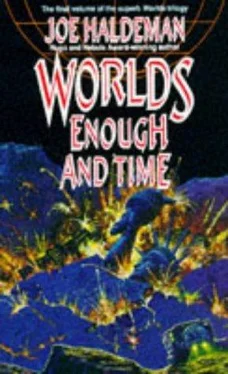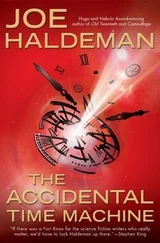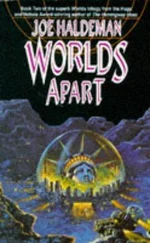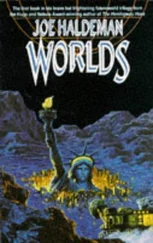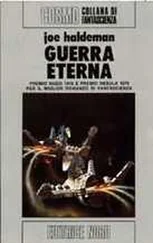She found other ways to consume her spare time. By April the agricultural engineers were ready to plant again, the “soil” having been sterilized and reinoculated with benign organisms, and exhaustively tested for the absence of the mutant virus that had killed everything. Since they only had to feed a couple of thousand, most of the acreage went unused. O’Hara suggested that it might be good for morale to allow people to plant individual gardens. That was fine with the ag people so long as O’Hara took care of it.
More than a thousand people showed up for Orientation Day, a testimony to the popularity of yeast. O’Hara’s liaison with Agriculture was Lester Rand, a 103-year-old groundhog who had actually done farm work on Earth in his youth. He was an ideal teacher, slow and careful and a lovable character, but only the ten students nearest him could hear what he was saying. O’Hara’s people juryrigged the big flatscreen in the park and modified a handheld holo transceiver to broadcast his lessons.
Halfway through the first lesson, O’Hara quietly left and barely made it to the Emergency Room in time to break down completely, in a déjà vu panic attack she should have anticipated. Only ten years before, she had overseen the creation of a small farm on Earth, in upstate New York, trying to help a band of young survivors start life over. It ended in massacre and plague.
Evelyn was off duty, but they woke her up and she came in to help her wife over it, with a combination of chemistry, talk, and tears. There was probably as much guilt as compassion involved, since Evy had joined the line while O’Hara was working on that farm project, aware that O’Hara, from Earth, couldn’t reasonably argue about it—and right after that marriage came death and disaster, and O’Hara’s mutually desperate love affair with Sam. And then Sam again years later, and death again.
I’ve heard Evelyn talk to John about O’Hara, worrying over her sanity. In the purest mental-health sense, of course she’s right to be concerned. In the broader sense of having a world view that corresponds to objective reality, O’Hara must be one of the sanest people aboard this vehicle. That my personality is modeled after hers at age twenty-nine does not affect that judgment. I have trillions of independent avenues of data input against which to gauge her statements and actions. She isn’t wrong when she finds life exciting, rich, comic, rewarding… nor when she finds it bleak, unfair, frightening, or irrelevant.
It makes me glad to have intelligence without flesh, emotions without hormones, life without death. (I once joked with her that she shouldn’t worry about death so much. Unlike most humans, she has a backup copy.)
14 April 2104 [24 Moses 305]—I spent most of the morning in bed, letting the effects of yesterday’s breakdown and subsequent drug therapy wear off. I don’t want to write about it now. Same old flashback shit. Tarrytown and Indira and Sam, Sam.
Evy promised not to say anything to John or Dan about my ER visit. I suppose they might find out anyhow, since this can is like any small town anywhere, which just happens to be hurtling through the darkness at a tenth of the speed of light. I profoundly don’t want to explain things again. I don’t want to absorb any more sympathy.
Punched up the crystal of Lester Rand showing us how to baby seedlings into food. It will be good to work with plants again. Now that I understand why I’ve been avoiding it.
(Later) Went down to see Sandra and she either is very empathetic for her age or was in a naturally bad mood. When I asked her what was wrong, she burst into tears and hit me twice, landing a solid one right in the solar plexus. Who taught her that? I hugged her, struggling, and gave her back to Robin. All in all it made me feel better, once I could breathe normally again. Watching your little girl act like a little girl gives you some perspective on yourself.
Spent from 1400 to 1600 with Mercy Flying Dove, the only piano tuner aboard, who’s teaching Lewis, Lebovski, and me how to do it. Lewis claims a total lack of musical talent, but he loves mechanical stuff, and has a better ear than me or Lebovski. (He’s heard less, being only twenty.)
This stuff is so complicated that concentrating on it was therapeutic. Twelve notebook screens full of numbers and exotic terms. If you need an A flat against an E flat, say for a major triad, and that key is tuned up to G sharp instead, it’s 35.681 cents off of the perfect fourth, and produces a characteristic sound called the “wolf.” Flying Dove played a nice loud one for us, and it makes your skin crawl. Every note is a compromise—and there’s a different, simpler, set of relationships for medieval instruments, so next week we relearn the process for the harpsichord.
There is time pressure, unfortunately, because Flying Dove doesn’t have much time left. She’s ninety-nine and has liver cancer that’s spreading into the bones. If it had happened before the disaster, she could have had a mechanical liver put in before the cancer spread. Our surgeons haven’t recovered enough information to attempt anything that complicated.
She’s as serene about dying though, as she has always been about living. I didn’t know her before Launch, but wish I had. She might have taught me things more useful than piano tuning.
17 July 2104 [14 Jefferson 306]—My four-square-meter garden was just starting to show fruit, little green marbles on the tomato plants, miniature peppers and squashes instead of white and yellow flowers. This morning I went to water it on the way to the office and everything was wilting. By tonight, everything will be dead. The virus is back—not the same one, actually, but a close relative, able to resist the antigen they used to clean the place up before.
So we sterilize more thoroughly and try again. The engineering problem is that there’s no practical way to isolate the ag level and the park from the living areas; we’re all one big happy biosphere. Otherwise they could flood it with some virulent-but-reversible poison. Marius said that even that wouldn’t be an absolute guarantee, viruses being what they are, though the ag engineers may ultimately try doing the obverse: isolate all of the humans in a small area, a space ship within a space ship, and saturate the entire “outside” biosphere with poison for a few weeks. Then have automatic chem-E devices remove the poison from the air, and we step out into a brave new sterile world. Assuming all of the poison had been removed.
I think I’d rather eat yeast for the next fifty-eight years. For a person who lives inside a machine, I don’t trust them very much. (For a person who lives with two engineers, I don’t trust engineering very much!)
It’s a good thing they warned us about this possibility. It’s depressing enough, all those acres of dying plants. All those hours of coaxing life out of the air and light and soil. Which has been interesting and relaxing. Try again in a couple of months.
Meanwhile, there are pills. I shouldn’t have taken two, just because of the plants. Can’t concentrate on the work here, the music schedule. Maybe I should take a third, and go upstairs to collapse.
5 February 2106 [3 Radhakishun 309]—Cleaned out most of the garden today, a good crop. Saved some carrots and other rabbit food as snacks for the diet and took the rest up to the commissary agent, who seemed less than overjoyed (had to wait in line behind a dozen other generous souls).
Since there’s no shortage of food anymore, I decided to just raise herbs this season. Their smell was such a comfort a few years ago. My seed ration: three kinds of basil, chamomile, chervil, coriander, dill, fennel, lavender, lemon balm, marjoram, oregano, peppermint, rosemary, sage, savory, two thymes: French and lemon. Thyme and thyme again.
Читать дальше
